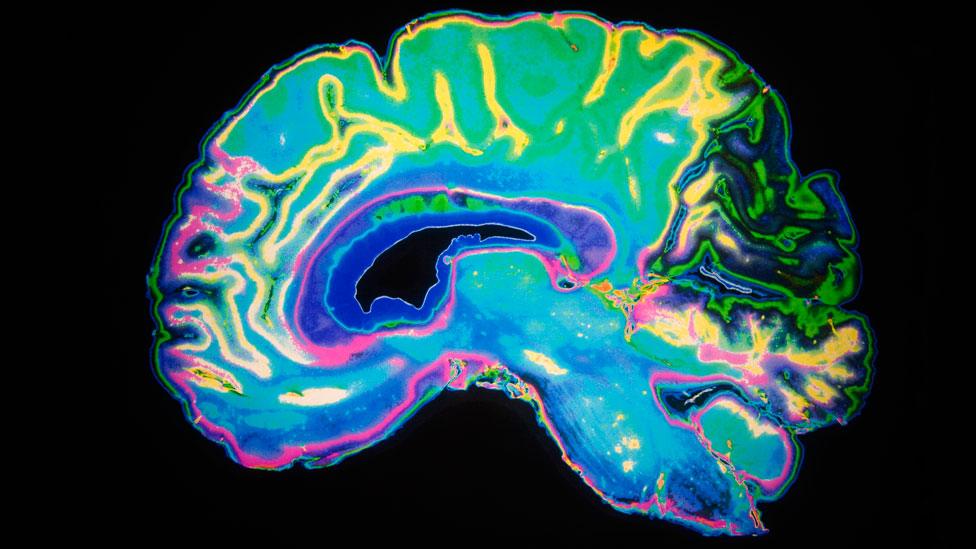Revolution in dementia care needed, Beti George says
- Published
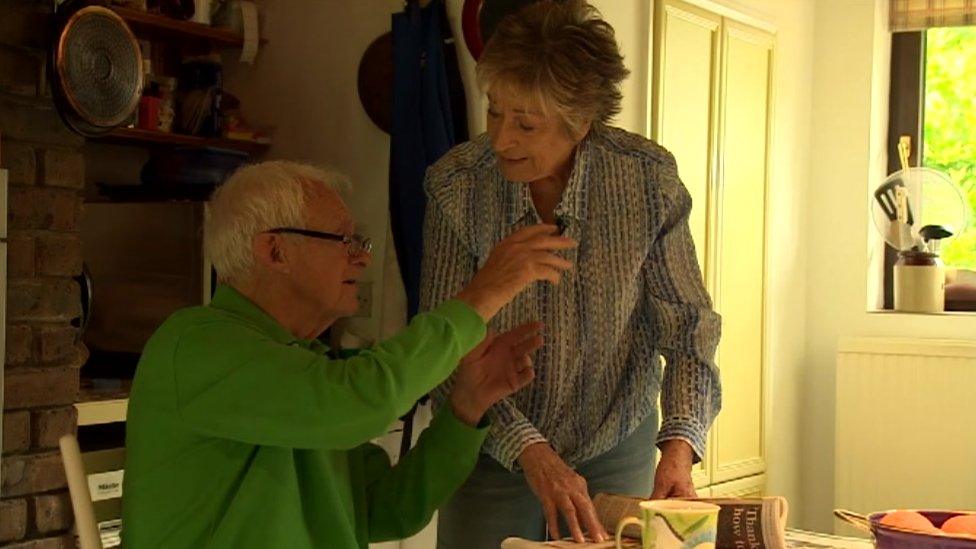
A "revolution" is needed in dementia care in Wales, the partner of veteran broadcaster David Parry-Jones has said.
Mr Parry-Jones was diagnosed with Alzheimer's disease in 2009 and is cared for at home by his partner, Radio Cymru presenter Beti George.
Ms George said Wales suffered from a "division between health and social services", carers were not paid enough and care in Scotland was "far ahead".
The Welsh Government is consulting on its Dementia Strategic Action Plan, external.
A spokeswoman said it had been working closely with charities and people affected by dementia to develop a "team around the individual approach" for people living with dementia and their carers.
Ms George allowed cameras into her Cardiff home to film her day-to-day life caring for her partner.
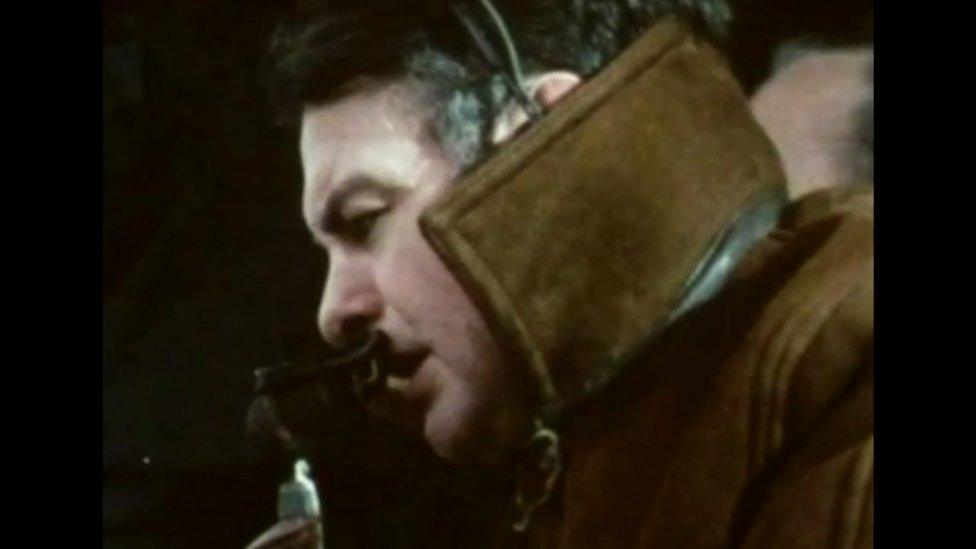
David Parry-Jones presented Wales Today and countless rugby programmes for the BBC
The couple met more than 40 years ago at BBC Wales.
"He was ever so kind and gentle really. He was very handsome but it was more than that," remembered Ms George.
Since his diagnosis Ms George has been working to raise awareness of the condition.
"I feel like I'm giving a voice to these people who can't otherwise be heard."
During filming for BBC documentary, Beti and David: Lost for Words, Ms George visited a group of medical students at Cardiff University and told them: "There really needs to be, I think, a revolution in dementia care and I'd like to see you taking part in that revolution or even starting it."
Beti George says her partner wept when he first forgot the punch line to a joke
She also visited the University of the West of Scotland in Paisley where she met experts and leaned about Scotland's approach to dementia care.
The country has a charter of rights, external for people with dementia and, following diagnosis, people are given a dementia link worker, external to provide support to individuals and their families.
Alzheimer Scotland's policy and research advisor Dr Barbara Sharp told Ms George that people with dementia and their families "were at the heart of writing the charter of rights and the other political parties came on board".
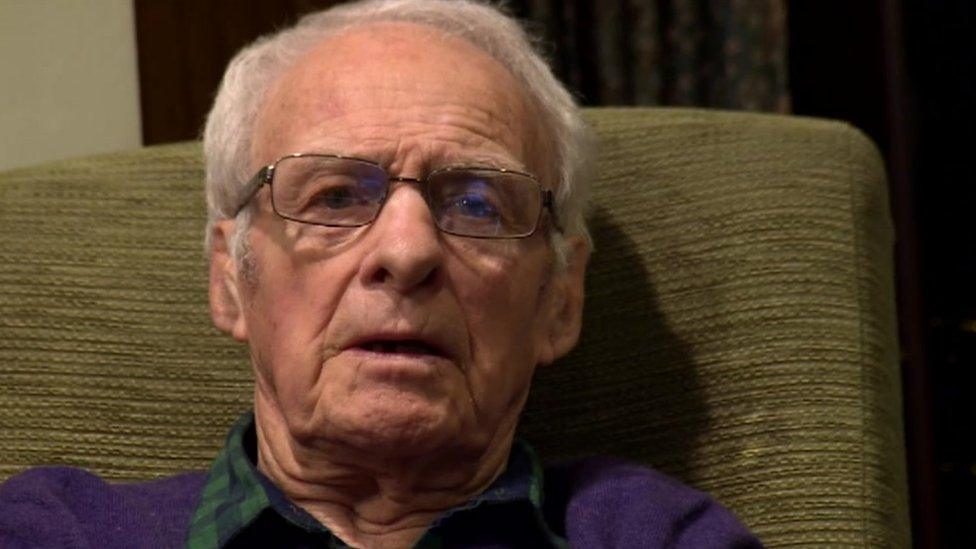
David Parry-Jones
She said: "It's a world first in the terms of it gives people an absolute commitment that they have the right to have the support of an informed link worker."
Ms George said she wanted Wales to follow suit.
"I think it's a brilliant idea to have a link worker, to signpost you I suppose, to hold your hand.
"When you get the diagnosis it's a traumatic experience so you want somebody who knows about it and who can talk you through what's available to make life a bit easier.
"I think a service like that would be ideal for people in Wales."
The Welsh Government said it had provided more than £8m a year of additional funding over the last two years for dementia services, including £800,000 a year for additional primary care dementia support workers to provide face-to-face help following diagnosis.
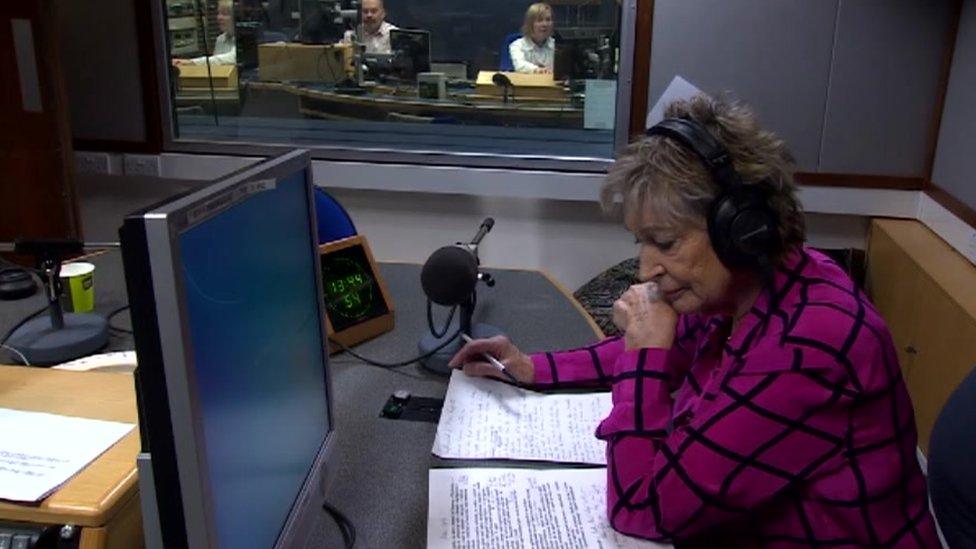
Ms George has presented Beti a'i Phobol on Radio Cymru for more than 30 years
Following her visit to Scotland, Ms George said she was impressed by the country's "enthusiasm and dedication".
"Scotland and Wales have limited resources but here they seem to think, 'well, that doesn't stop us from talking about it and doing something about it'," she said.
She praised Mr Parry-Jones's carer but was critical of homecare on the whole, calling it "inconsistent".
"Until they pay them a decent wage the problem will never go away."
A Welsh Government spokeswoman said: "We are committed to improving the working conditions of our dedicated care staff, which is why we recently held a consultation looking at a wide range of issues affecting them.
"We have now outlined our intentions to influence the use of zero hours contracts and are looking at other ways of improving the working conditions of these vital workers."
Beti and David: Lost for Words will be broadcast on BBC One Wales at 21:00 GMT on Monday 13 February
- Published10 February 2017
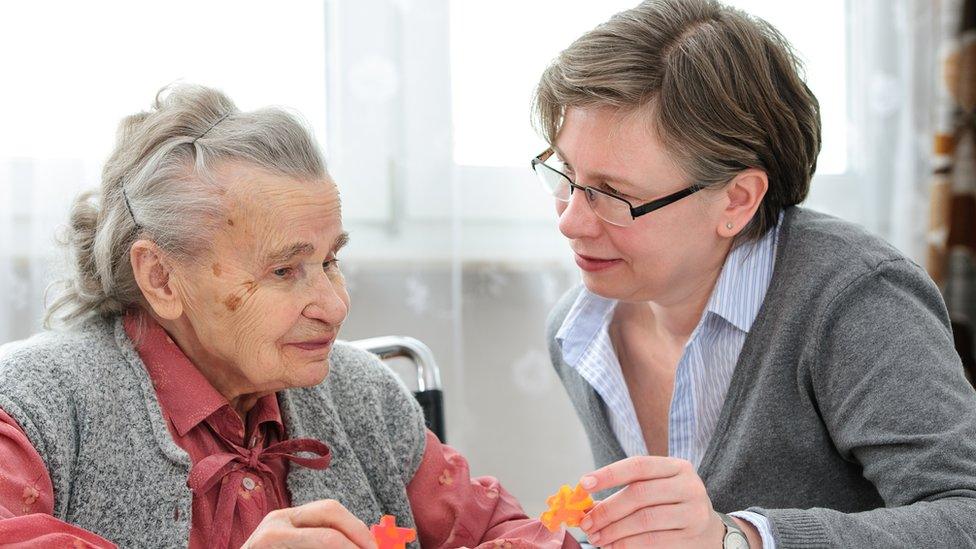
- Published23 November 2016
- Published7 October 2016
